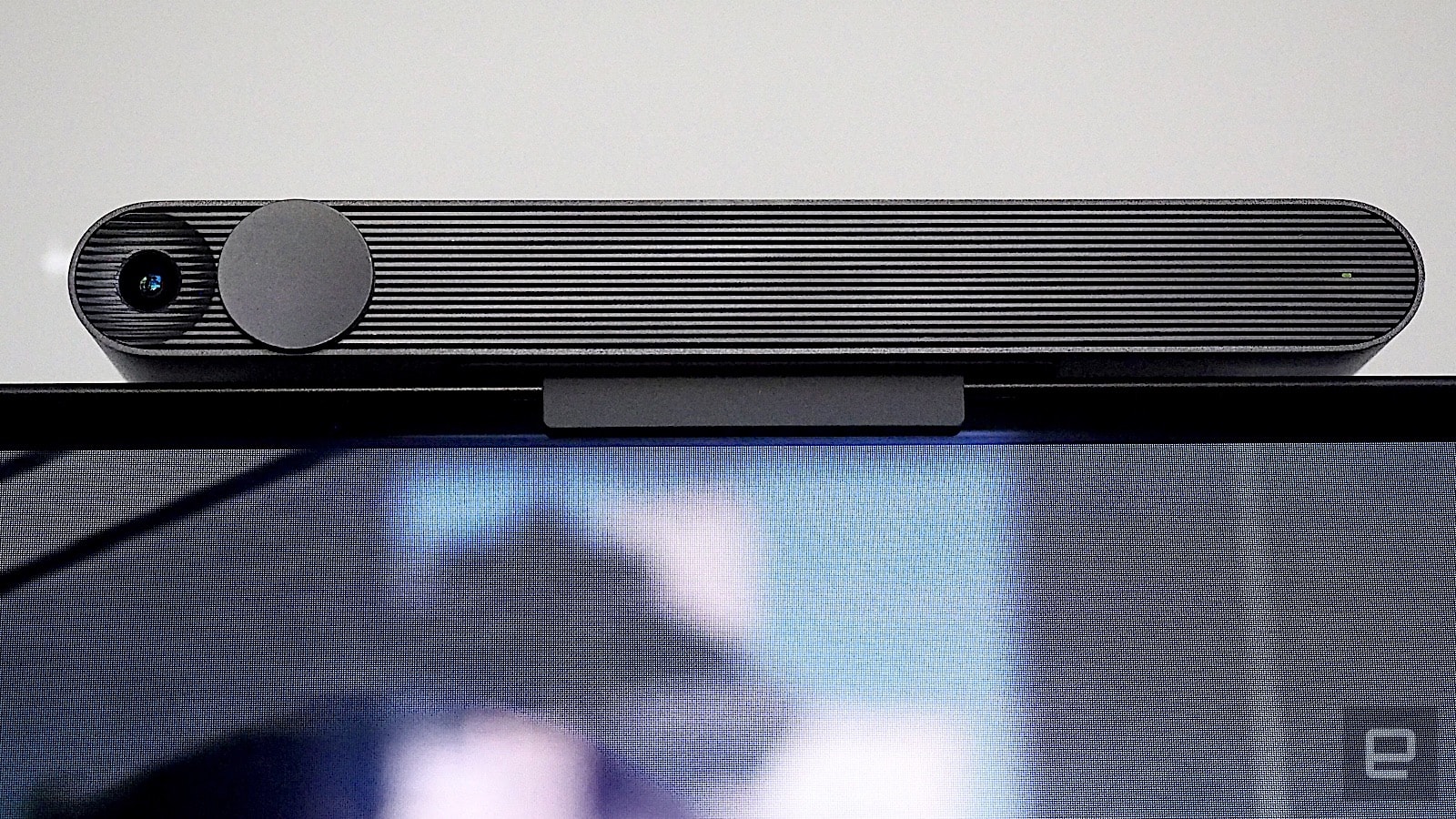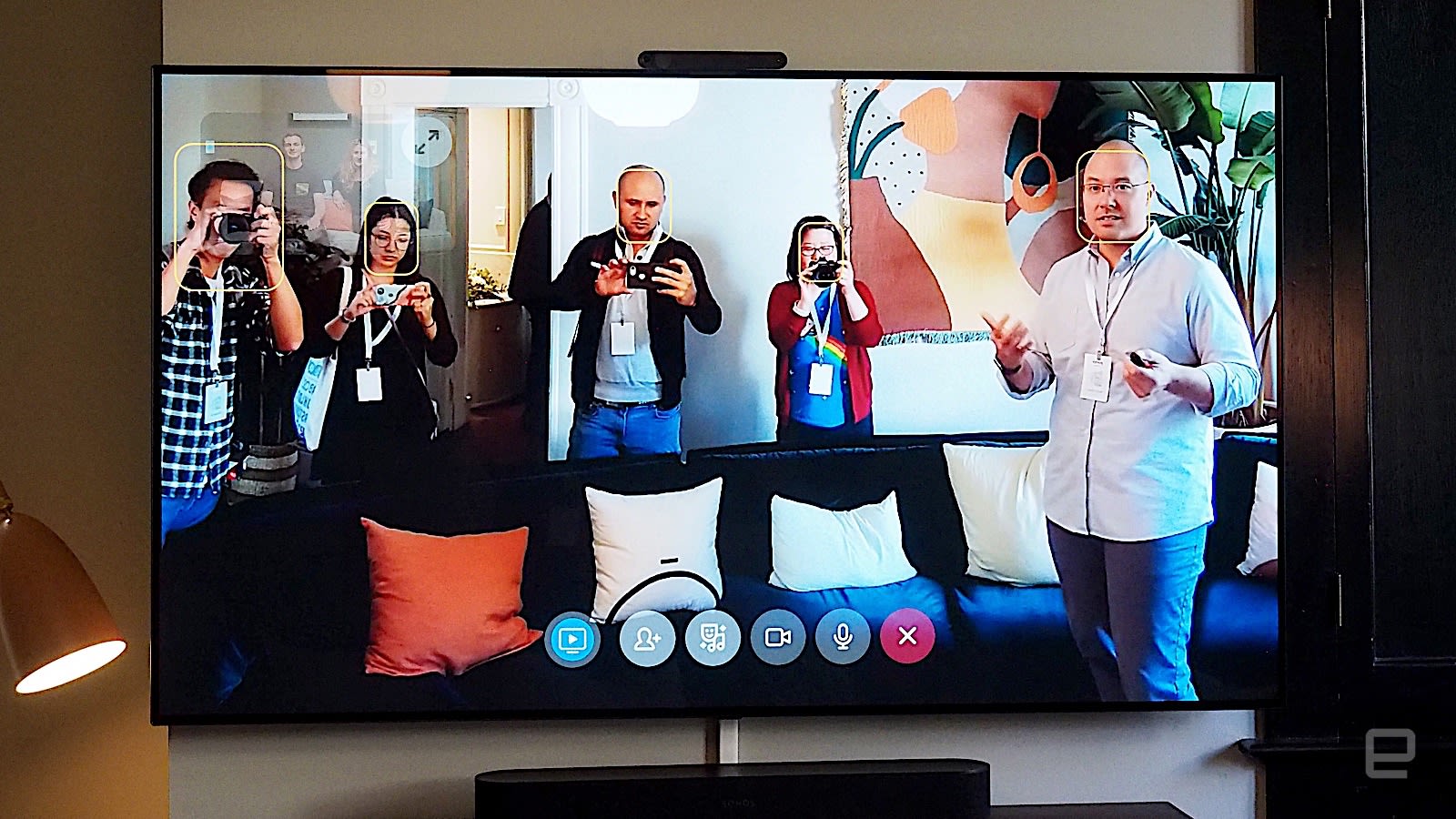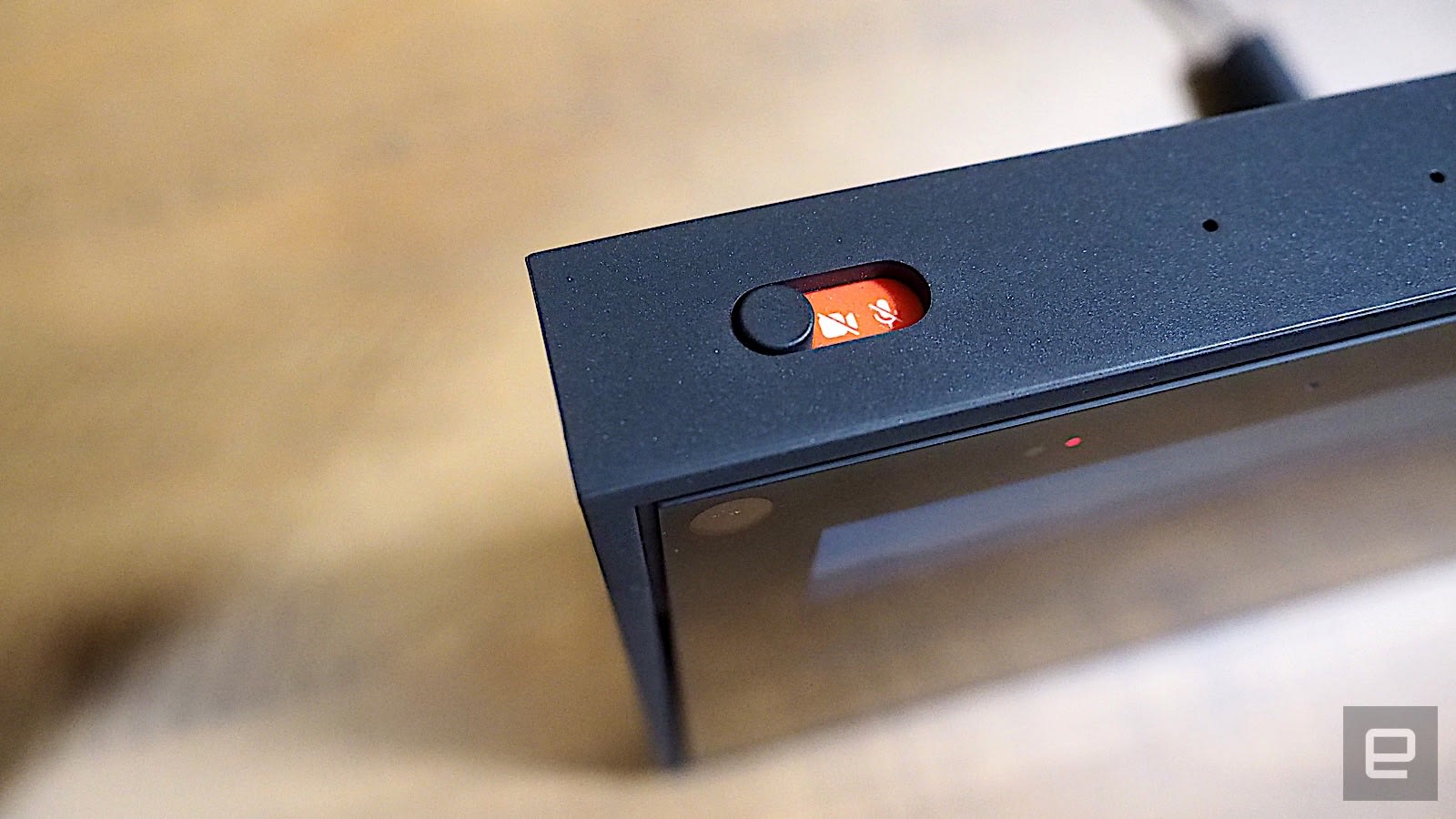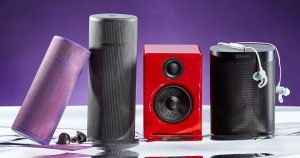Facebook claims that the new Portals have improved speakers as well, with two full-range speakers plus a subwoofer in each device. Based on a brief experience at the launch event, they did sound very good, with rich bass and clean highs. I’d need to hear them in a quieter room however, to figure out how they compare to other smart speakers.
The Portal TV, on the other hand, is not really a smart display on its own. It’s a camera that you attach to your television’s HDMI port, thus transforming your TV into a giant smart display. It comes with a small remote control to navigate the Portal TV interface.
As with the other Portal devices, you can use the Portal TV for video calls, which I have to say seems to be a very good use case for it. There’s just something about being able to see your callers on a large TV that makes it seem much more “immersive,” as if they’re actually there in the same room with you. I can see something like this being a big hit for people with large families, especially since the Portal TV’s 120-degree field of view is able to fit more people into the same shot. (Both the Portal and Portal Mini have a 114-degree field of view camera.) Additionally, the Portal TV has an 8-field microphone array (other Portal devices have a 4-field microphone array) in order to accommodate bigger spaces and the fact that you’ll likely be further away from the device.
One feature that only the Portal TV has is Watch Together. It’s a feature that lets you and another Portal TV owner watch the same shows together during a video call. Right now, this feature only works with Facebook Watch, but there’s a possibility that it’ll work with other streaming services in the future. Also, as Facebook Watch is only accessible via a Facebook account (duh), the only way to watch it together is if the video call is via Messenger rather than WhatsApp. In “Watch Together” mode, your caller’s window will be minimized to a small picture-in-picture in the upper right corner, while the video you’re both watching takes up the whole screen.
Similar to the other Portal devices, the Portal TV has a toggle switch that mutes the microphone and shuts off the camera simultaneously. There’s also a physical camera lens cover if you want that extra bit of privacy.
That’s not all either. Facebook is also announcing that, along with making calls via Messenger, you can now use Portal devices to make video calls via WhatsApp. Additionally, while last year’s Portals were only available in the US and Canada, the new batch will now be available in the UK, France, Italy, Spain, Australia and New Zealand. Facebook will also continue selling last year’s Portal+ for $249.
Aside from that, many of the features on the new Portals are the same as last year’s. They include the aforementioned video calling, AR experiences and effects (such as funny face filters and an AR-powered ‘Storytime’ feature for kids), a built-in browser, Amazon Prime Video, plus two different voice assistants: “Hey Portal,” and Amazon’s Alexa. The “Hey Portal” command is for Portal-specific controls such as calling someone in your contacts list, increasing the volume, or setting the alarm. Alexa, on the other hand, is used for other tasks, such as looking up something on the internet or seeing who rang your Ring video doorbell.
All the Portals also have that AI-powered smart camera, which is able to digitally pan and zoom to frame your shot perfectly, no matter where you move around the room. It works with multiple people too; the shot will automatically adjust to fit everyone in the frame. You can also select just one person to “spotlight” and the camera will digitally zoom in on just them. According to Facebook, there’s no biometric or specific facial recognition going on here. It can identify whether or not a moving object is a person, but not who that person is.
There are several other privacy and security measures too. All video and voice calls, be it from Messenger or WhatsApp, are end-to-end encrypted. The AI-powered camera features are processed locally on the device, and not sent to Facebook’s servers. “Hey Portal” voice interactions are sometimes recorded and transcribed for a team to look at (much like with all other smart voice assistants) but they can be deleted, and storage of the voice recordings can be blocked entirely.
That said, not everything you do on Portal is 100 percent private. Facebook acknowledges that it does collect some information about how you use Portal and that information may be used to inform the ads you see on Facebook. So if you make a lot of video calls, you might see ads about video calling, or if you use Facebook Watch a lot, you might see ads related to that. That’s not really any different from just using normal Facebook, but it’s at least something to be aware of.
You can pre-order the Portal, Portal Mini and Portal TV starting today. The Portal and Portal Mini will start shipping on October 15th, while the Portal TV begins shipping November 5th. You can bundle any two Portal devices for $50 off.
All products recommended by Engadget are selected by our editorial team, independent of our parent company. Some of our stories include affiliate links. If you buy something through one of these links, we may earn an affiliate commission.

Comments

137
Shares






